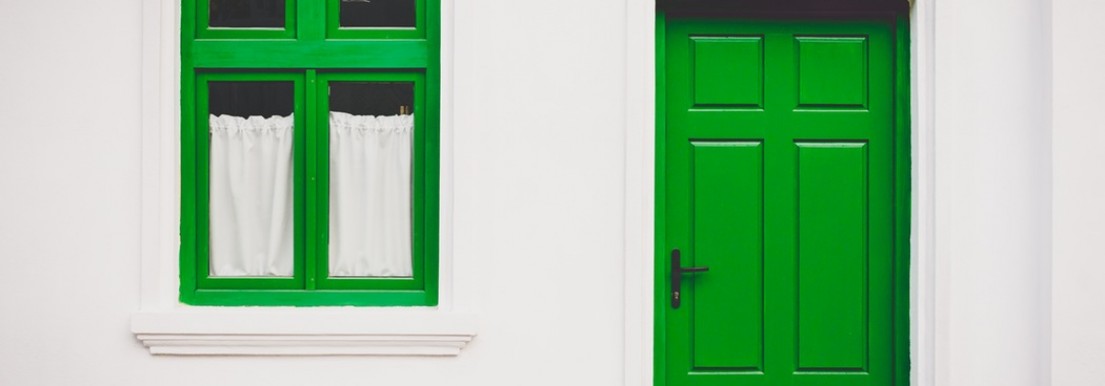A R I A D N E / / K A P S A L I

your relationship to money is fucked up
A few days ago I found myself part of a money conversation. It went something like this: “London is so ridiculously expensive… Buying a decent flat is at least £400.000… Even for us with good salaries, it would be really difficult.” And so on. I say I found myself because my involvement was non consensual. I don’t tend to participate in such discussions.
I disengage pretty quickly when friends or colleagues discuss the possibility of buying a place, savings and investing. I had not until recently however, fully realised why I avoid these topics.
For a long time I believed it was because I genuinely was not considering this option. Buying was simply not in my radar and I was confident that when this desire arose in me it would be something I would end up doing. At some point… sometime in the future. Yet as I grow older and progress through life, my thinking has not evolved. If anything, it has gone backwards. Yes, the state of my finances is not conducive to being in a position to get a mortgage, but the issue is much more complex than numbers. The problem lies in my relationship to money, which it turns out is, in all honesty, totally fucked up (sorry mum).
Money represents so many things in life: status, identity, power, success, freedom. Yet, it rarely is about how many zeros you have in your bank account. If you look at people who have money problems, you notice often the problem is related to their perception of what money is and whether they feel they deserve that. Money itself has no power; it simply is an exchange of value, an exchange of energy. Apart from the production costs and work involved, it is our interpretation of the value of the product/service that determines whether we think something is cheap or expensive. I am not even going to attempt to go into consumer psychology and economics, I barely grasp the basics. My point here is this: the reason our relationship to money is so fucked up is because we attach our personal value to how much money we have, make and deserve. To make matters worse, it is our personal worth, the deepest beliefs we have about ourselves and our role in society, that determine the state of our finances.
Let me explain this using my own experience: I grew up having enough, but surrounded by people who had ‘more than enough’. People from rich families, with villas, summer houses, multiple cars, pools. People whose kids wore designer labels, went to Disney World (I was so jealous), had housekeepers. Dads were rarely at home and the mums made weekly visits to the hairdresser and nail salon. As a child I was raised to value money, but I could also, from a young age, sense the inequality between my family and most of my friends. I absorbed a belief that having all these things was somehow wrong. I started adopting the attitude that having (a lot of) money equals to being insincere, corrupt or even fundamentally a bad person. Somehow getting by was a dignified state representing a struggle which had led to a mature and noble quality, the status quo of the intellectuals versus that of the glitterati. Getting by meant you were down to earth and deserved respect, in contrast to those who have money who had either inherited their wealth and therefore were not worthy of their fortune or had acquired it in a dodgy way and thus considered dishonest. There was a tiny fraction of rich people that had worked really, really hard so they were fine – no judgement. But they really worked to deserve the slack they were given.
So, you see? I found myself as a teenager envying my friends for the life I wish I had, while feeling guilty I was betraying my family. When I moved away from home, to London, these subconscious beliefs that had become rules of life were hard to follow as they no longer fitted into neat boxes. I was so confused because I could see that some people did in fact fit the stereotype rich=bad, yet poor did not always equal good and definitely did not equal happy either. (Rich also did not equal happy, by the way, as you know.)
When my family could no longer sustain the cost of my studies and life in London (which was much earlier than most of my friends), I was forced to take my finances on myself and make money to survive. You might think this is obvious, but actually for a lot of people it’s not. Recently, I was at a party when a 31 year old woman told me she can no longer rely on her parents to support her with paying the rent because of the econonic crisis in Greece. Seriously? So for a 20 year old from that culture, I was protected from the real world. It was a steep learning curve and I loved every minute of the struggle. I finally felt responsible for my life: I could waste my money, I could save my money – whatever, it was mine. The point was I knew you do work, provide value, contribute and be rewarded for it. Simple maths.

My twenties were all about finding my feet financially. Freeing myself from my family’s money stories (the good, the bad, the nasty) and choosing to be independent. This experience, although essential and invaluable, cemented the belief that struggle is essential for growth. You only evolve through adversity. You need to be in the gutter to reach for the stars.
And I got bloody tired. Life was fucking unfair. Why did I have to get a loan when my friends didn’t? Why did I have to work in GAP if my friends shopped in Selfridges? I knew why and I was actually proud of myself for where I had got to. Yet, deep down, I was still envious of the ease that others had, which was confirmed at each life stage we advanced to. School, university, wedding, house – the cushion was always there for others.
My belief became I am someone who will get by; but that’s it. I simply get by; I work hard and I deserve the money I make. But challenge me to actually envision a life where I have more than that and hello, resistance. Where does that leave me? Self sabotage (debt, a lack mindset, blocked opportunities), self fulfilling prophecy and the perfect vicious cycle. It certainly does not allow me to feel worthy of owning a flat (after all my family home is rented) or feeling grown up to have a healthy relationship with money.
It’s fascinating;this is so common, it is almost boring. Yet the amount of women that struggle with their relationship to money is insane. On the surface we have it all figured out. In fact my friends often say they admire me for what I’ve achieved (sometimes they add the punch in the stomach: without your parents’ money). I am honestly grateful for the way I was raised, I never lacked anything. What is lacking is the belief that there is enough for everyone. That having more than enough is simply that. It does not mean you are bad, nor that you are good. It is how you use your wealth and good fortune that defines you. That working extremely hard is not the only way you deserve to make money (nor does it obviously guarantee that you will make money). Rather, working smart is the key. What needs to be strengthened is the belief I am worthy of making money, that I value myself highly and that value is manifested in the state of my finances. That I am worthy to desire the things I desire and they make me no less of a good person.
It all comes down to how much you value yourself. Everything else is just peanuts.





